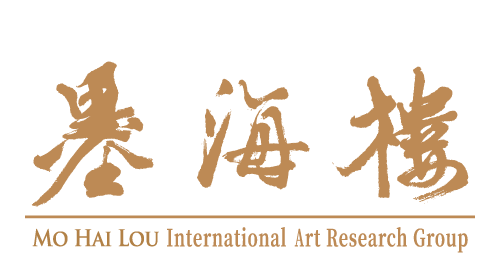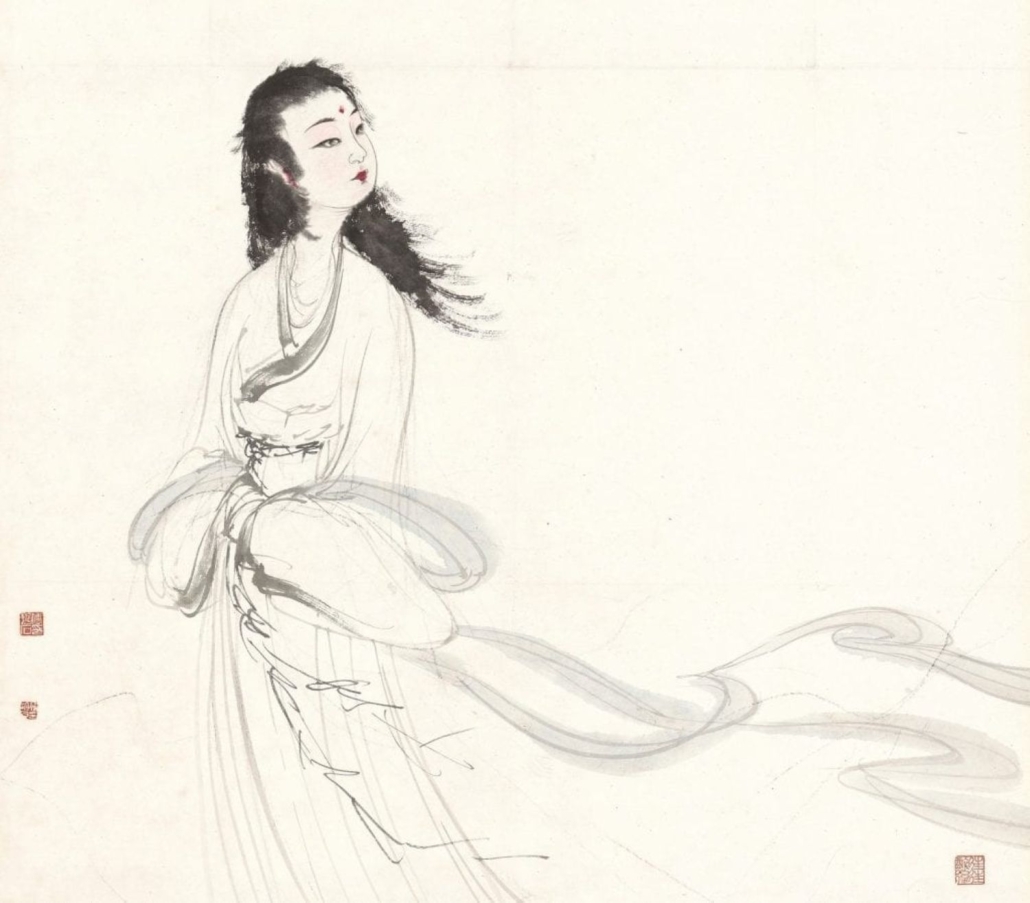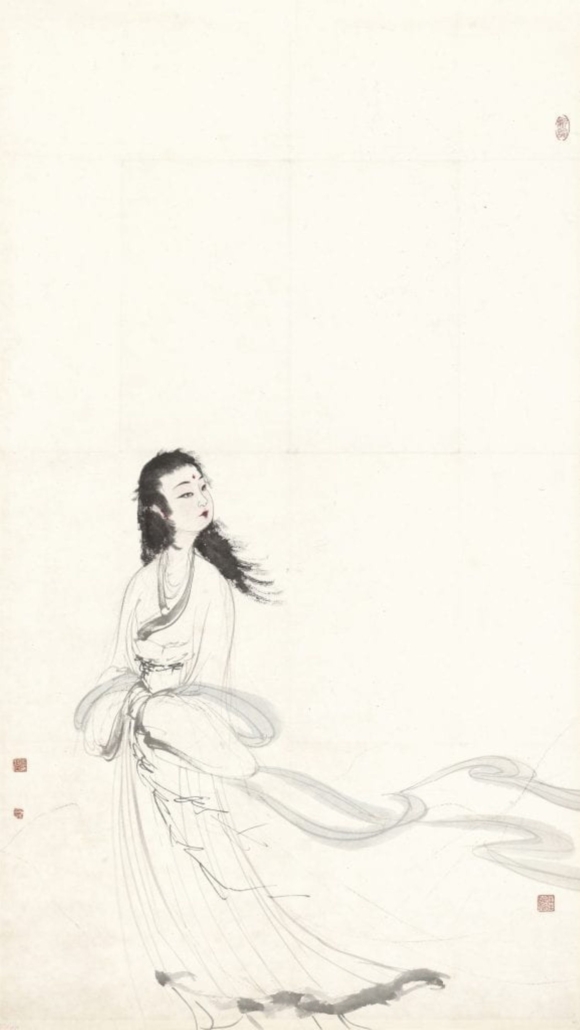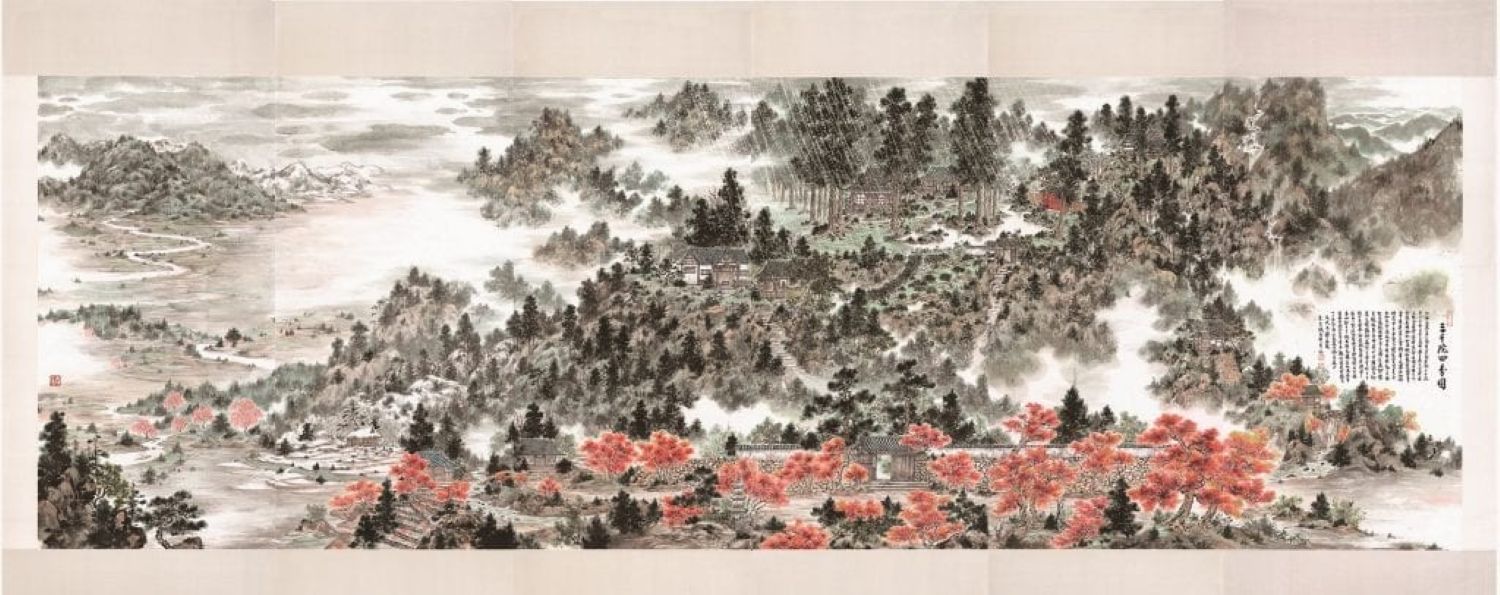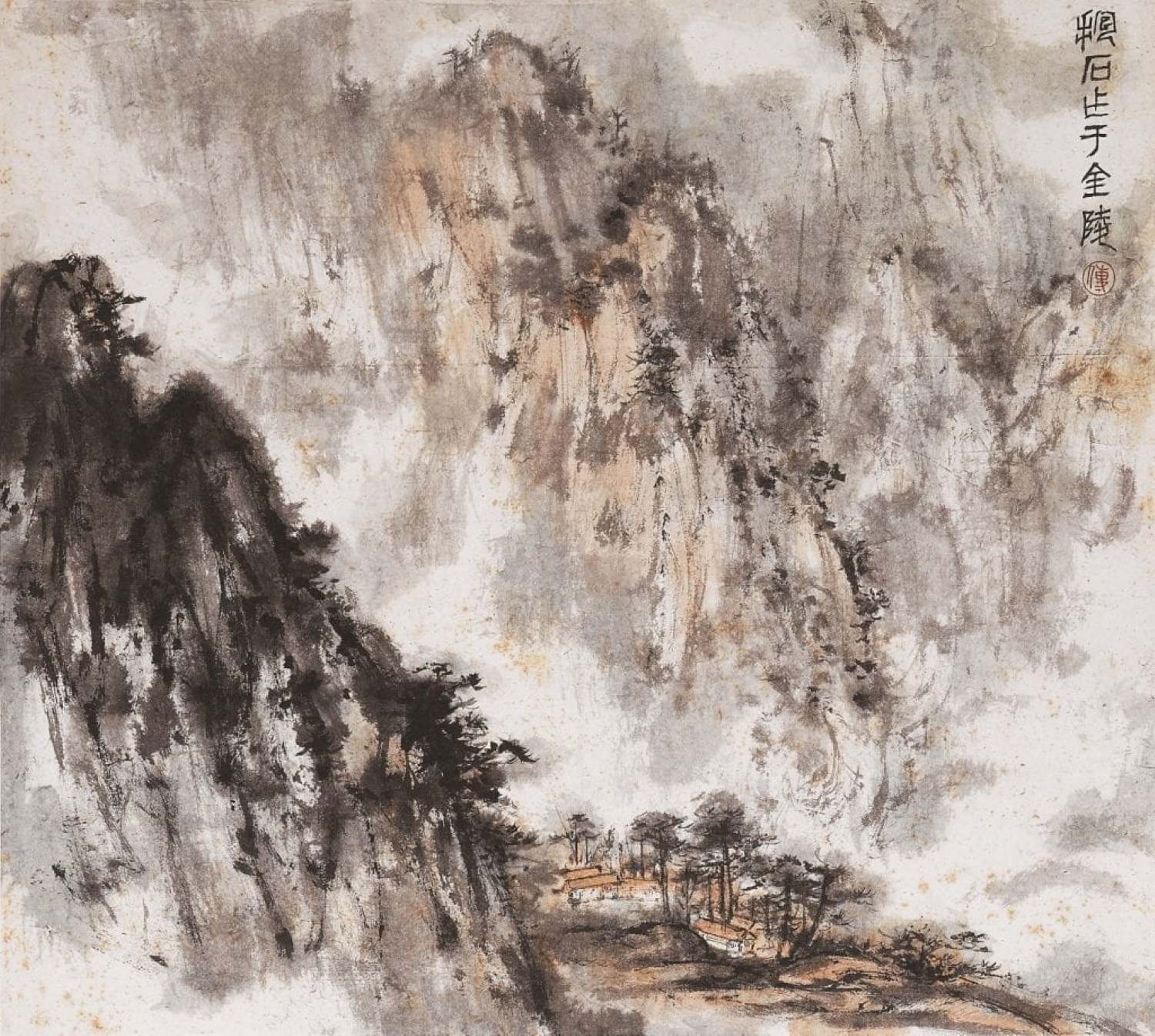【Reporter: Chen Anting】
The “Artistic Transmission – Art Exhibition of Fu Baoshi & Fu Yiyao” officially opens today at Exhibition Hall 1 of Chiang Kai-shek Memorial Hall and will run until November 6. This grand art exhibition not only showcases several classic works by Fu Baoshi’s daughter, Fu Yiyao, but also presents rare, authentic masterpieces from the Fu family collection, making it a truly remarkable and rare artistic event.
One of the highlights of the exhibition is Fu Baoshi’s representative piece, “Qu Yuan’s Nine Songs: The Mountain Spirit” (屈原九歌山鬼圖), inspired by the ninth poem from Chu poet Qu Yuan’s “Nine Songs”. Also on display is “Xiang Jun” (湘君), a fan painting based on the third poem from “Nine Songs.” This piece holds special significance as it was the last artwork Fu Baoshi created as a birthday gift for his wife. In addition, multiple precious landscape paintings by Fu Baoshi will be featured, each a masterpiece in its own right.
▲Fu Baoshi’s iconic work – Qu Yuan’s Nine Songs: Mountain Spirit (屈原九歌山鬼圖). (Photo courtesy of Chiang Kai-shek Memorial Hall)
National Treasure-Level Artworks on Display for the First Time in Taiwan
Curator and authentication expert Dr. Ye Guo-Shin notes that several national treasure-class artworks that had never before left Japan are being exhibited in Taiwan for the first time. The collection includes classic paintings, calligraphy, ceramics, and works representing the essence of various artistic periods.
Among the highlights are Fu Yiyao’s large-scale mural paintings, collected by renowned Japanese temples, such as:
- “The Four Seasons of Sanzen-in”
- “The Compassionate Avalokiteshvara of Kyoto’s Sanjūsangen-dō”
Also featured are works selected as part of the 2020 Tokyo Olympics Cultural Support Project, including:
- “The Suwa Grand Shrine Onbashira Festival”
- “The Nachi Fire Festival”
Fu Yiyao has also inherited her father’s literati poetic painting style, as seen in:
- “Yu Xi’s Journey”
- “Spring’s Radiant Beauty”
Her Imitating Father’s Brushwork series, including:
- “Pipa Song – In the Style of My Father”
- “Xiang Jun Crossing the River – In the Style of My Father”
These highly acclaimed pieces showcase a deep reverence for Fu Baoshi’s artistic legacy and can all be admired in this exhibition.
▲The large-scale screen painting The Four Seasons of Sanzenin, collected by a renowned temple in Japan, by Fu Yiyao. (Photo courtesy of Chiang Kai-shek Memorial Hall)
Fu Yiyao: A Master of Grand and Poetic Ink Paintings
In the 1980s, Fu Yiyao followed in her father’s footsteps and studied in Japan, where she has resided for over 40 years, becoming a Chinese-Japanese artist. Her works are distinguished by a unique personal style and have been collected by numerous Japanese shrines and temples, with very few circulating in the public domain. She is known for her large-scale paintings, characterized by a grand, powerful atmosphere, rich emotions, and Zen-like tranquility. Her art masterfully balances strength and delicacy, exuberance and restraint, solidifying her reputation as an outstanding ink painter.
A Rare Opportunity to Witness the Fu Family’s Artistic Legacy
The exhibition embodies the artistic lineage and heritage of the Fu family. Visitors can now experience Fu Baoshi’s previously unseen authentic works and Fu Yiyao’s monumental masterpieces from renowned Japanese temples—without the need to travel abroad.
To further engage the public, a special talk featuring Fu Yiyao and renowned art connoisseur Dr. Ye Guo-Shin will be held on November 2 at 3 PM. This discussion promises to be a fascinating exchange between a legendary artist’s daughter and a leading authentication scholar, making it a must-attend event for art lovers.
▲Fu Baoshi – Mountain Light and Cloud Shadows (山光雲影). (Photo courtesy of Chiang Kai-shek Memorial Hall)
Media Source : Da Media News Network
